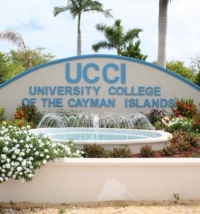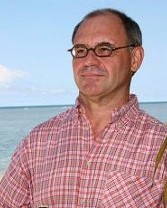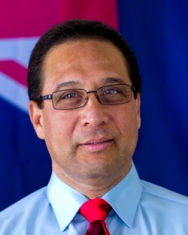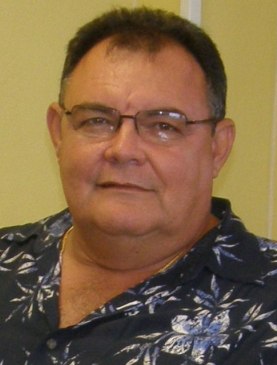Archive for January, 2011

Cayman not only place rejected by US brokers
 (CNS): In the wake of a US based broker’s revelations that it would not be doing business with clients in the Cayman Islands in December, it appears that this jurisdiction is not the only offshore centre receiving the cold shoulder. Sources in the Bahamas have also revealed that TD Ameritrade is closing accounts registered there as well. It is understood that the broker is telling clients there that it is “to mitigate risk”. When the firm first revealed to a number of its Cayman clients that it would no longer being doing business with them, it indicated it was as a result of international requirements. Government told CNS on Monday that officials were still following up on the situation and would keep the public informed of developments.
(CNS): In the wake of a US based broker’s revelations that it would not be doing business with clients in the Cayman Islands in December, it appears that this jurisdiction is not the only offshore centre receiving the cold shoulder. Sources in the Bahamas have also revealed that TD Ameritrade is closing accounts registered there as well. It is understood that the broker is telling clients there that it is “to mitigate risk”. When the firm first revealed to a number of its Cayman clients that it would no longer being doing business with them, it indicated it was as a result of international requirements. Government told CNS on Monday that officials were still following up on the situation and would keep the public informed of developments.
TD Ameritrade wrote to a number of its Cayman based clients in December to inform them that they were placing restrictions on accounts in Cayman because of international requirements. “After assessing global requirements for doing international business, TD Ameritrade has decided that we will no longer open or maintain accounts in certain international jurisdictions,” the letter stated.
In a phone call to one member of Cayman Finance, the local industry body, the brokers reportedly said this was as a result of a directive of some kind from the US Office of Foreign Assets Control (OFAC). However, the US treasury office denied having issued any kind of order and pointed out that it does not block transactions with jurisdictions, but targets specific parties. It told Cayman’s Washington based attorneys, Sidley Austin LLP, that there were no orders, directives or other regulations that restricted US financial institutions or US citizens from doing business with the Cayman Islands, its financial institutions or residents.
"It is now clear that any action TD Ameritrade may have taken was made without the knowledge or approval of OFAC," government said in a statement. It is still unclear why TD Ameritrade and other related brokers have made the decision not to do business with Cayman based clients or, as has now been revealed, the Bahamas but government says it will follow up on the matter.
Cayman Finance said that TD Ameritrade is accepting alternate US addresses for existing clients and that TD Waterhouse in Toronto is still accepting Cayman clients, as is Charles Schwab. It too has said it will continue to pursue the reason why the brokers have made this decision and intends to keep its members informed.

University makes last call for spring students
 (CNS): The University College of the Cayman Islands in George Town said that it would be accepting new students for the Spring Semester 2011 for all degree programmes, including continuing education and professional courses, until Thursday, 13 January, when registration closes. From hospitality management to computer science, UCCI has a wide range of associate and bachelors degree programmes. The university also offers a range of post graduate programmes, from MBAs to diplomas in education, with evening classes to enable working students to juggle study with their jobs.
(CNS): The University College of the Cayman Islands in George Town said that it would be accepting new students for the Spring Semester 2011 for all degree programmes, including continuing education and professional courses, until Thursday, 13 January, when registration closes. From hospitality management to computer science, UCCI has a wide range of associate and bachelors degree programmes. The university also offers a range of post graduate programmes, from MBAs to diplomas in education, with evening classes to enable working students to juggle study with their jobs.
Anyone interested in studying at the university can visit www.ucci.edu.ky or call 623-UCCI (8224) for more information.

Cops say requests vexatious
 (CNS): The bi-annual report by the Information Commissioner’s Office for the first half of 2010 reveals that the most frequently applied exemption for refusing freedom of information requests was section 9 (a) of the law relating to “vexatious” requests. The report said that this had been used 41 times as grounds for refusal or 30% of all the reasons for turning requests down. Of those 41 it was used 40 times by the police, the ICO revealed, triggering an investigation, the results of which are expected to become public shortly. The second most frequent refusal was section 23(1), the “unreasonable disclosure of personal information”, which was used 37 times by different public bodies and accounted for 27% of the total refusals.
(CNS): The bi-annual report by the Information Commissioner’s Office for the first half of 2010 reveals that the most frequently applied exemption for refusing freedom of information requests was section 9 (a) of the law relating to “vexatious” requests. The report said that this had been used 41 times as grounds for refusal or 30% of all the reasons for turning requests down. Of those 41 it was used 40 times by the police, the ICO revealed, triggering an investigation, the results of which are expected to become public shortly. The second most frequent refusal was section 23(1), the “unreasonable disclosure of personal information”, which was used 37 times by different public bodies and accounted for 27% of the total refusals.
‘This usage is high for these first six months as compared to last year’s figure of 47 over a twelve month period,’ Jennifer Dilbert, the information commissioner, said in the report. She also noted that while there was evidence that authorities have become more familiar with the use of the law, there were still issues with the approach public bodies had towards the culture of freedom of information.
“The continuous thread that seems to run through the application of the law is the public authorities’ tendency to view any potentially controversial information as secret or personal,” Dilbert stated. “Therefore the ICO remains focused on encouraging a cultural shift to reform that way of thinking to one which promotes transparency to the extent that the law allows.”
In the bi-annual round-up of the first half of 2010 the information commissioner reveals that there were a total of 264 access requests made to 53 of the 88 current public authorities, bringing the number of requests since the law came into effect in January 2009 to 1086. Of those 264 requests made in the first half of the year 202 were resolved in that six month period.
Information managers refused requests fora range of reasons, from “no record” to deferrals, with a total of 29 different sections of the law being applied to deny access. However, the exemption that the “Request for record is deemed to be vexatious” was used 41 times.
“40 of these were by the same public authority. Due to the high usage of section 9(a) the ICO (conducted) inquiries with the authority to determine the reasons behind such use,” the report revealed. At the time of the report the case was still open but the office explained on Monday following the tabling of the report in the Legislative Assembly that it has since been closed and the public authority was the Royal Cayman Islands Police Service.
“The mediation summary for the case will be completed and up on the website in the next couple of days, which will give a better account of why and how the exemption was used,” the office explained.
During the first half of 2010, 10% or 21 of the FOI requests made were also refused or closed as a result of “no records” being found. The commissioner pointed out, however, that this could mean that either the requested records do not exist, or that the requested records could not be located.
Dilbert also noted in her report that in order for her office to assess the system properly it requires the various public authorities to input their FOI related activity into the “JADE” tracking system but human error was causing problems.
“By analyzing these reports the ICO is able to determine how government handles FOI requests in general and identify any systemic issues or issues specific to a particular authority. While the ICO meticulously collates all relevant data, there are several factors which will result in a margin of error in the accuracy of statistical figures. Since the end of 2009, analysis has shown that the main cause for the inaccuracy in statistical reporting is data input errors by the public authorities,” the report revealed.
The commissioner pointed out that, while the errors could be mitigated by liaising with the FOI Unit, which has full access to the JADE system that can provide reports where public authorities fail to do so, it is creating an unnecessary burden on both offices. As a result, Dilbert said, to assist the ICO to meet its obligations under the law the office it should have full read access to the JADE system, which it has not been given.
To read full report, click here and then click on "Bi-Annual Report 1st January – 30th June 2010"

Whistle blower faces trial in Switzerland
 (Bloomberg): A former Swiss banker whose actions caused a US judge to shut down WikiLeaks three years ago faces trial for allegedly distributing confidential documents showing how his former employer helped rich clients dodge taxes. Rudolf Elmer, a former employee of Swiss-based Bank JuliusBaer, has been ordered to appear before a Zurich regional court on 19 Jan to answer charges of coercion and violating Switzerland’s strict banking secrecy laws. Elmer said he will admit certain counts but insisted he didn’t break Swiss laws because the files belonged to a Julius Baer subsidiary in the Cayman Islands, where he worked for eight years.
(Bloomberg): A former Swiss banker whose actions caused a US judge to shut down WikiLeaks three years ago faces trial for allegedly distributing confidential documents showing how his former employer helped rich clients dodge taxes. Rudolf Elmer, a former employee of Swiss-based Bank JuliusBaer, has been ordered to appear before a Zurich regional court on 19 Jan to answer charges of coercion and violating Switzerland’s strict banking secrecy laws. Elmer said he will admit certain counts but insisted he didn’t break Swiss laws because the files belonged to a Julius Baer subsidiary in the Cayman Islands, where he worked for eight years.
"This data wasn’t subject to Swiss banking secrecy," he told The Associated Press in a telephone interview Monday.
If convicted he could be sentenced to up to three years in prison and a fine.
Swiss financial newspaper Cash was among those that in 2005 received a copy of a CD containing 170 megabytes of data on the Julius Baer’s Cayman operations. The files reportedly showed the bank helped its clients set up secret offshore accounts to avoid paying taxes.

Soft drinks increase diabetes risk says report
 (HIVE): A new research study has quantified the risk of developing diabetes associated with consuming soft drinks and sugar-sweetened drinks. Researchers from the Harvard School of Public Health and Brigham and Women’s Hospital in Boston published the results of their meta-analysis or review study in the journal, Diabetes Care. What they found was that individuals who typically consume 1-2 servings per day had a 26 percent higher risk of developing type 2 diabetes than those who consumed less than 1 serving per month.
(HIVE): A new research study has quantified the risk of developing diabetes associated with consuming soft drinks and sugar-sweetened drinks. Researchers from the Harvard School of Public Health and Brigham and Women’s Hospital in Boston published the results of their meta-analysis or review study in the journal, Diabetes Care. What they found was that individuals who typically consume 1-2 servings per day had a 26 percent higher risk of developing type 2 diabetes than those who consumed less than 1 serving per month.
Though regular consumption of these beverages has already been associated with weight gain and an increased risk of obesity the role of sugar-sweetened drinks in the development of chronic diseases such as diabetes has not been previously quantified.

New book cranks up tax haven criticism
 (CNS): Coming on the heels of the positive international news exposure the Cayman Islands received as a result of the sinking of the Kittiwake last week, The Guardian published two extracts from a new book this weekend that paints Cayman back in a more familiar image in the eyes of the global press. Nicholas Shaxson’s latest book, Treasure Islands: Tax Havens and the Men Who Stole the World, examines the history and present day offshore sector and takes a swipe at Jersey, Cayman, Bermuda and Switzerland, among others. The book, which criticises tax havens, also looks closely at the history and development of offshore finance. The author says the impression given by denunciations of tax havens by world leaders that the offshore system has been tamed is untrue.
(CNS): Coming on the heels of the positive international news exposure the Cayman Islands received as a result of the sinking of the Kittiwake last week, The Guardian published two extracts from a new book this weekend that paints Cayman back in a more familiar image in the eyes of the global press. Nicholas Shaxson’s latest book, Treasure Islands: Tax Havens and the Men Who Stole the World, examines the history and present day offshore sector and takes a swipe at Jersey, Cayman, Bermuda and Switzerland, among others. The book, which criticises tax havens, also looks closely at the history and development of offshore finance. The author says the impression given by denunciations of tax havens by world leaders that the offshore system has been tamed is untrue.
“In fact quite the opposite has happened,” he writes. “The offshore system is in very rude health — and growing fast.”
Shaxson states that more than half of world trade passes, at least on paper, through tax havens. “More than half of all banking assets and a third of foreign direct investment by multinational corporations are routed offshore,” the author reveals.
Describing offshore financial centre as “fortified nodes of secret, unaccountable political and economic power, where financial and criminal interests have come together to capture local political systems and turn the havens into their own private law-making factories”, he says they are protected against outside interference by the world’s most powerful countries – most especially Britain.
Shaxson claims that Britain’s overseas territories, “such as the Cayman Islands – are substantially controlled by Britain, and combine futuristic offshore finance with medieval politics” and believes the UK has considerable influence over the financial sector here.
Quoting what he describes as a senior Caymanian politician, he says the UK wants to have a significant degree of control on the islands, but at the same time it does not want to be seen to have that control, the unnamed politician reportedly said. “Like any boss, it wants influence without responsibility; they can turn around when things go wrong and say ‘it’s all your fault’ – but in the meantime they are pulling all the strings."
The importance of the UK is further emphasized when he suggests that Britain is the bedrock to the country’s financial sector. “If Caymanians gained full control, most of the money would flee,” writes the author.
The book, which is published by The Bodley Head, comes out in the UK this week and in the US in April. Shaxson is a British writer, journalist and investigator and author of the acclaimed 2007 book Poisoned Wells: the Dirty Politics of African Oil. He is an Associate Fellow of Chatham House (the Royal Institute of African Affairs inLondon) and a full-time writer and researcher for the Tax Justice Network. Since 1993 he has written extensively on global business and politics for the Financial Times, Reuters, the Economist and its sister publication the Economist Intelligence Unit, International Affairs, Foreign Affairs, the American Interest, the BBC, Africa Confidential, African Energy, and a wide range of others.
Guardian extracts:

First PPM nomination made
 (CNS): Alden McLaughlin has become the first person to be nominated in the People’s Progressive Movement leadership race. The George Town MLA was officially nominated last week at a district meeting after he received three nominations, party officials have confirmed. The former education minister is the first MLA to be officially declared as a candidate to fill Kurt Tibbetts’ shoes as leader of the opposition. The election is expected to take place in February, when all signed up members of the party will be able to vote for their choice of leader. The leader of the PPM must be a serving MLA, and so far from the five PPM members of the LA only Arden McLean of East End has also expressed a desire to take on the job. (Photo Dennie WarrenJr)
(CNS): Alden McLaughlin has become the first person to be nominated in the People’s Progressive Movement leadership race. The George Town MLA was officially nominated last week at a district meeting after he received three nominations, party officials have confirmed. The former education minister is the first MLA to be officially declared as a candidate to fill Kurt Tibbetts’ shoes as leader of the opposition. The election is expected to take place in February, when all signed up members of the party will be able to vote for their choice of leader. The leader of the PPM must be a serving MLA, and so far from the five PPM members of the LA only Arden McLean of East End has also expressed a desire to take on the job. (Photo Dennie WarrenJr)
McLean is expected to be nominated by his local party branch before the end of this month, leading to what is likely to be just a two horse race.
Anthony Eden, who is the second elected member from Bodden Town, and Moses Kirkconnell, the first elected for the Sister Islands, have not publicly expressed any interest in contesting the party leadership, but in the CNS poll Kirkconnell pulled in the exact number of votes as his GeorgeTown parliamentary colleague.
The announcement that the top PPM job would be vacant in 2011 came in November, when Tibbetts, who has served as party leader since its creation, announced his decision to step down from the leadership. Although he will not be resigning his post as an MLA, Tibbetts said that following the party’s defeat in the national poll in May 2009 he had to take responsibility for that and step down.
Tibbetts, the former leader of government business, who has served in the Legislative Assembly since 1992, said that once the new leader, along with a deputy leader and a party general secretary, was elected he would be there to offer support but would allow what he called the new blood of the party to take the PPM forward and would not impose on them.
“I have always been a firm believer in succession planning and now the PPM needs new blood at the top, new people to lead the movement and carry out its mission. From time to time every organization needs a change of leadership to foster growth and allow for continuity and the PPM is no exception,” he said.

New population figures expected month end
 (CNS): The number of people currently living in the Cayman Islands is now expected to be revealed to Cabinet and then the public at the end of January. According to officials from the national statistics office, the first information that will be available as a result of the national census, which began on 10 October last year, will be a precise and up to date population figure. The director of the Economics and Statistics Office, Maria Zingapan, said that although the census organisers had originally anticipated that they would be able to reveal the country’s current head count before the end of 2010, the need to go back and count a number of ‘no contact’ households saw the national survey extended, delaying the revelation of the first statistic.
(CNS): The number of people currently living in the Cayman Islands is now expected to be revealed to Cabinet and then the public at the end of January. According to officials from the national statistics office, the first information that will be available as a result of the national census, which began on 10 October last year, will be a precise and up to date population figure. The director of the Economics and Statistics Office, Maria Zingapan, said that although the census organisers had originally anticipated that they would be able to reveal the country’s current head count before the end of 2010, the need to go back and count a number of ‘no contact’ households saw the national survey extended, delaying the revelation of the first statistic.
“The census sweep, where enumerators went back to “no contact” households, was extended to 16 December, hence the preliminary count was also extended,” she explained. “Procedurally, we are expected to submit to Cabinet the preliminary count by end of January,” she said, noting that after government had seen the report it would be given to the public.
Although enumerators had managed to count 90% of households in the original time period given for the count, between 10 October and 22 November, officials decided to extend the process for a few more weeks in order to try and capture the remaining ten percent of people who were away or, in some cases, had refused to take part.
While officials expect to be able to compile and reveal the population statistic in the next few weeks, it will not be until the end of this year that any other statistics will be available as officials say it will take several months to compile, analyse and then report on the statistical circumstances of the country’s population.

District councils on agenda
 (CNS): A number of controversial laws will be up for debate when the Legislative Assembly resumes Monday, including the law to create district councils. Although the establishment of these local bodies is broadly supported, the fact that they will not be elected has stirred up controversy. Ezzard Miller, the independent representative for North Side who has already established a district council in his constituency for which the members have been elected by the local people, is proposing a number of amendments to the government’s bill. Although he is unlikely to receive much support for his changes from the government bench, it will at least provide an opportunity for all members of the House to question why these bodies will be undemocratic.
(CNS): A number of controversial laws will be up for debate when the Legislative Assembly resumes Monday, including the law to create district councils. Although the establishment of these local bodies is broadly supported, the fact that they will not be elected has stirred up controversy. Ezzard Miller, the independent representative for North Side who has already established a district council in his constituency for which the members have been elected by the local people, is proposing a number of amendments to the government’s bill. Although he is unlikely to receive much support for his changes from the government bench, it will at least provide an opportunity for all members of the House to question why these bodies will be undemocratic.
Miller has said he wishes the district councils across the island to be created through a democratic process that involves all of the people and will not support the proposed legislation without changes. It is unclear what will happen to Miller’s own council once the law is enacted and government is in a position to appoint three of the people on the council and whether three of Miller’s elected councillors will be forced to step down
The bill was first published in November and revealed that the councils would not be elected but would be appointed by Cabinet. Of the maximum ten councillors only two have to be recommended by the opposition in each district, unless there is no government member in the constituency when Cabinet will only be able to appoint three members. The members will have to live in the district and, according to the proposed legislation, will have “special qualifications, training, experience or knowledge of the district” suitable to the role.
The idea to create district councils was part of the 2009 Cayman Islands Constitution and the law will provide for a district council in each of the six electoral districts or constituencies where they people on the council will advise their MLAs on the issue that are particular to the district they represent and raise concerns that need to be taken to the main legislature.

MLAs face busy day
 (CNS): The country’s legislators are return to the Legislative Assembly on Monday to face a packed agenda. The lawmakers are expected to be debating seven pieces of legislation as well as dealing with parliamentary questions. This will be the third meeting of the tenth sitting of the 2010/2011 session and includes some controversial bills, along with the Advisory District Councils Bill, the Health Practice (Amendment) Bill, 2010 is coming up for debate. This will facilitate medical tourism and allow doctors from anywhere in the world to be registered to practice in Cayman. The Wastewater Collection & Treatment Bill, 2010, which will facilitate the privatisation of the country’s sewerage system is also expected to be debated, among others.
(CNS): The country’s legislators are return to the Legislative Assembly on Monday to face a packed agenda. The lawmakers are expected to be debating seven pieces of legislation as well as dealing with parliamentary questions. This will be the third meeting of the tenth sitting of the 2010/2011 session and includes some controversial bills, along with the Advisory District Councils Bill, the Health Practice (Amendment) Bill, 2010 is coming up for debate. This will facilitate medical tourism and allow doctors from anywhere in the world to be registered to practice in Cayman. The Wastewater Collection & Treatment Bill, 2010, which will facilitate the privatisation of the country’s sewerage system is also expected to be debated, among others.
The Water Production and Supply Bill, 2010, The Water Authority (Amendment) Bill, 2010, The Prisons (Amendment) Bill, 2010 and the Criminal Procedure Code (Amendment) (No. 2) Bill, 2010 are also on the table for debate.
This sitting of the legislature is the first since the House adjourned on 9 December when the country’s politicians had spent the entire day castigating reporter Brent Fuller over a news article he wrote, which was published in The Caymanian Compass, drawing attention to plans by MLAs to discuss amendments to the Freedom of Information Law behind closed doors.
Accusing the reporter and the paper’s editorial in connection with the article of insulting the Legislative Assembly and its members, the House voted in support of a motion tabled by independent MLA Ezzard Miller requesting the attorney general to investigate whether Fuller should be prosecuted, as well as to revoke his “right” to report on the Legislative Assembly.
Shortly after the session AG Samuel Bulgin said he would not be moving forward with a prosecution but it has not yet been clarified whether Fuller will be allowed back in the Assembly building.
The Caymanian Compass has, however, stated that it intends to boycott the proceedings and report on the events via other means, such as Radio Cayman’s evening broadcasts.